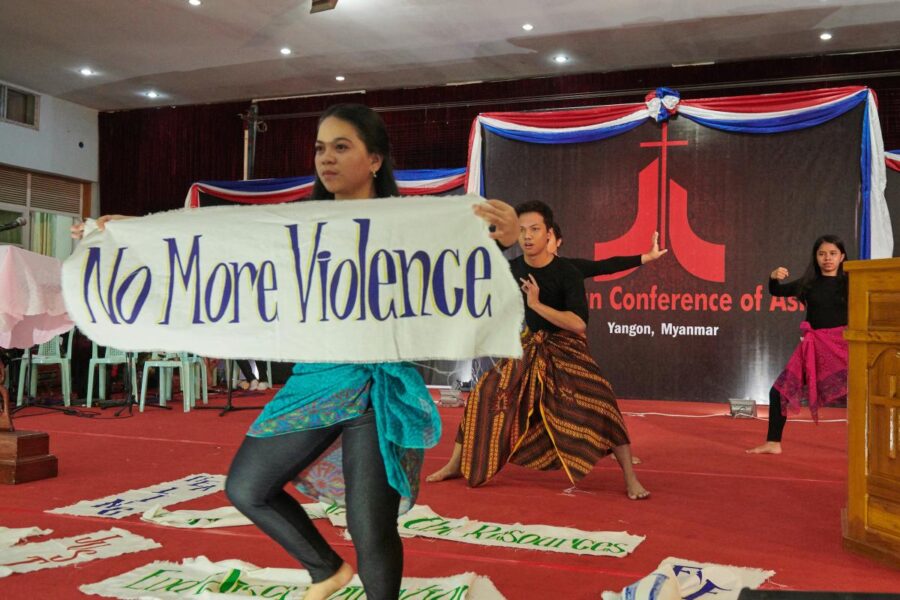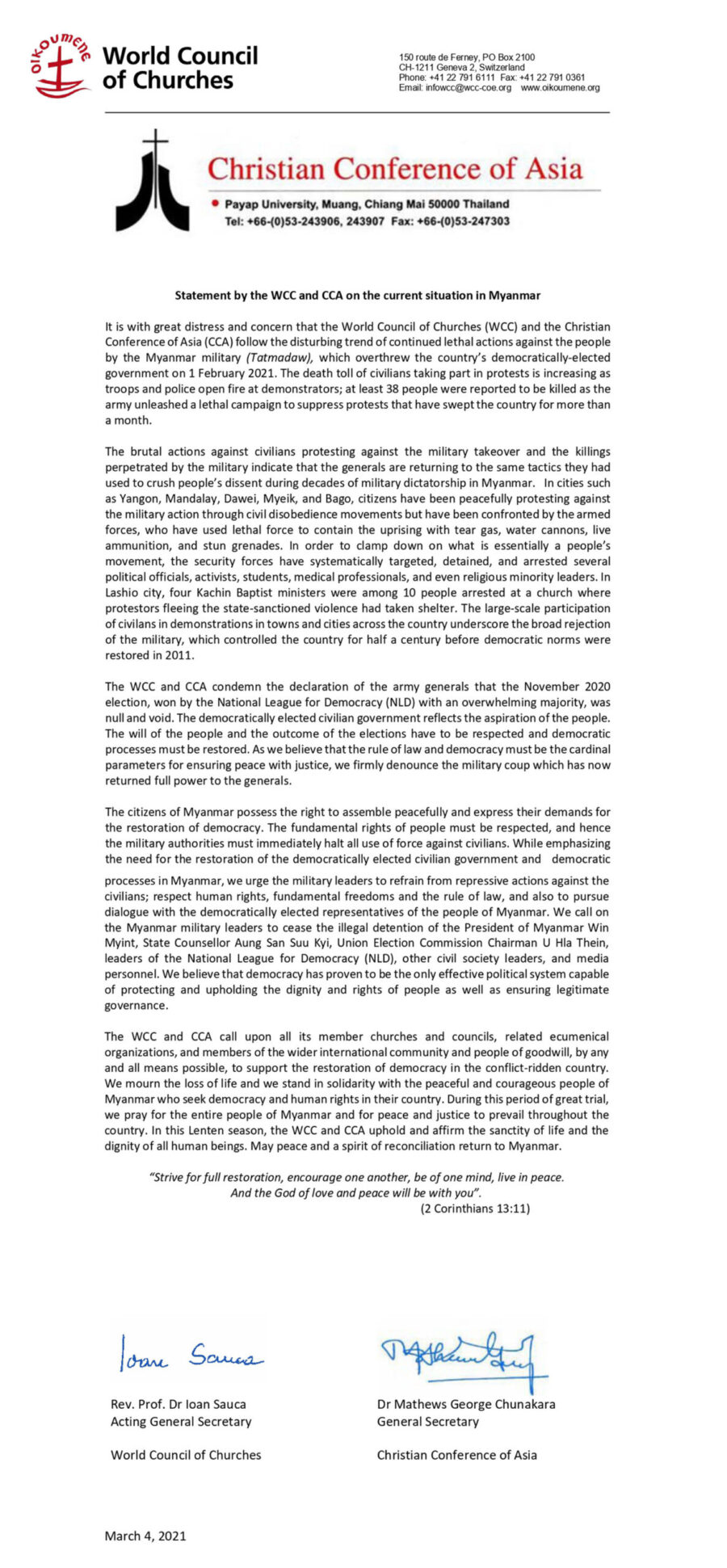General Secretaries of WCC and CCA denounce Myanmar military’s continued lethal action against the people
 Themes of high importance are highlighted by liturgical dancers during the session of the Asia Mission Conference in Yangon, Myanmar, October 2017.Photo: Paul Jeffrey/WCC
Themes of high importance are highlighted by liturgical dancers during the session of the Asia Mission Conference in Yangon, Myanmar, October 2017.Photo: Paul Jeffrey/WCC
The World Council of Churches (WCC) and the Christian Conference of Asia (CCA) General Secretaries have condemned the deteriorating law and order situation and violence in Myanmar, especially the killings of people by Myanmar security forces during protests against the military coup.
Rev. Prof. Dr Ioan Sauca, General Secretary of the WCC, and Dr Mathews George Chunakara, General Secretary of the CCA, in a joint statement expressed great distress and concern over the continued lethal actions against the people by the Myanmar military (Tatmadaw), which overthrew its democratically-elected government on 1 February 2021.
The leaders of the global ecumenical bodies stated that the democratically elected civilian government reflects the aspiration of the people. The will of the people and the outcome of the elections have to be respected and democratic processes must be restored in Myanmar.
“As we believe that the rule of law and democracy must be the cardinal parameters for ensuring peace with justice, we firmly denounce the military coup which has now returned full power to the generals,” added Rev. Dr Sauca and Dr Chunakara in their joint statement on behalf of the international ecumenical organisations.
According to media reports, since the military coup took place on 1 February, 38 people have been shot dead during clashes at protests in different parts of the country, and hundreds wounded.
The global ecumenical leaders urged the military leaders of Myanmar to refrain from repressive actions against civilians; respect human rights, fundamental freedoms, and the rule of law; and pursue dialogue with the democratically elected representatives of the people of Myanmar.
The military justified the coup saying its complaints of voter fraud in the elections of 8 November 2020 had been ignored. Nobel Peace Laureate Aung San Suu Kyi’s National League for Democracy (NLD) won the election by a landslide, earning a second five-year term, and the Election Commission confirmed that the election was fair.
“In this Lenten season, the WCC and CCA uphold and affirm the sanctity of life and the dignity of all,” concluded the joint statement.
The full text of the joint statement can be found below:











